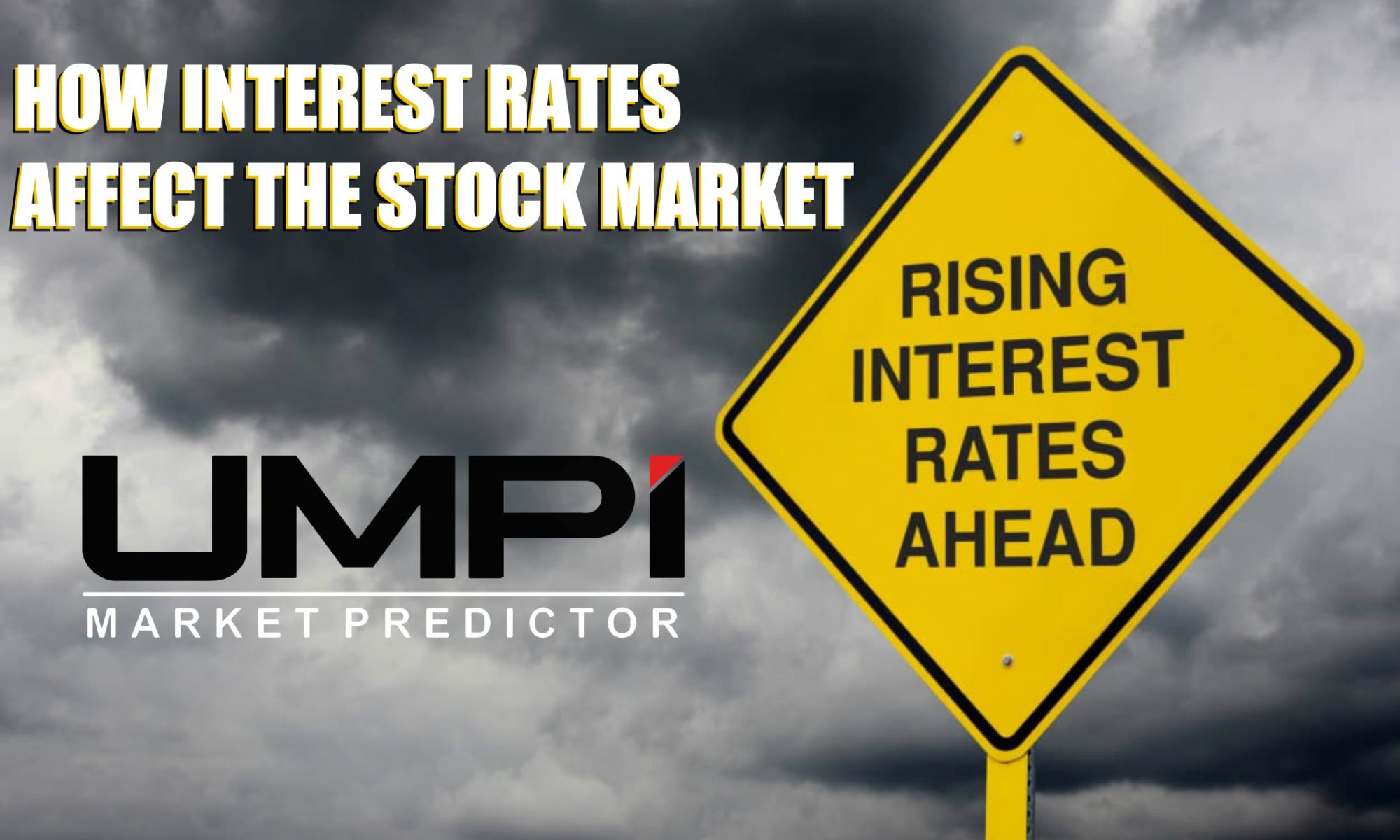Monetary policy choices can have a major impact on equity markets. At its core, monetary policy is all about the cost of borrowing. This is called an interest rate. When people talk about interest rates and the stock market, they are typically referring to the effective federal funds rate.
This is the interest rate used by the Fed whenever lending to institutional banks. How does this impact the stock market, though? Well, to answer that, will have to discuss how interest rates work in general.
How Do Interest Rates Work?
Understanding how interest rates work is relatively straightforward. Let’s say that you need to borrow some money from a friend. They’ve decided to help you, but you’ll have to pay them back more than what you borrowed. This helps compensate them for the risk, and you can pay them back over time. The amount that you are charged is called the interest.
What Is the Definition of Interest Rate:
Interest rates are defined as the amount charged to a customer for borrowing money. Here is an easy way to picture this. Let’s say you’ve borrowed $1000 at 10% APR. If you make regular payments, by the end of the year, you will have paid $100 in interest.
What Is the Effective Federal Funds Rate?
Generally speaking, banks determine what they’ll charge their customers in terms of interest. However, when the bank is borrowing money, they’ve also got to pay interest. They’ll pay interest in the form of the effective federal funds rate. This is a specific interest rate sent by the Federal Reserve Board, also known as the Fed. These interest rates tend to have a ripple effect.
What Is the Federal Reserve’s Open Market Committee?
The Federal Reserve’s Open Market Committee, or FOMC, sets the nation’s effective federal funds rate. Thus, dictating monetary policy. The board is composed of 12 different members. These 12 members are responsible for all of the US’s monetary policy decision-making.
Why Does the Federal Reserve Change Interest Rates?
Changing interest rates Can have profound effects on the economy. Raising the interest rate makes it more difficult for people to borrow. Higher interest rates increase the cost of borrowing. Thus, limiting the potential pool of qualified borrowers. By making it cheaper to borrow, low rates can help make money move through the economy.
Economic Factors Impact the Fed’s Interest Rate Policy:
The Federal Reserve decides how it will set interest rates by examining the economy. Typically, if the economy is running smoothly, it won’t change anything. However, in some circumstances, adjusting rates might prove beneficial.
Lowering Interest Rates Can Help Boost Employment:
During periods of high unemployment, lowering federal interest rates can be helpful. Lower interest rates tend to encourage increased employment. Businesses can borrow money to hire people more easily. Also, consumers are a lot more likely to spend their money borrowing is cheap.
Higher Interest Rates Might Keep High Inflation Under Control:
Low rates can have a downside, though. Whatever interest rates are kept low for too long, inflation tends to run high. This depresses everyone’s purchasing power. Raising interest rates can be seen as a tool to combat rising inflation.
How Do Interest Rates Impact the Stock Market?
So, how does all of this come together when we talk about the stock market? Well, the stock market is all about the flow of capital. Companies will have higher stock prices if they are more profitable and expanding.
Lower Interest Rates Tend to Encourage Higher Stock Prices:
Let’s imagine the Federal Reserve decides to lower the effective federal funds rate. This won’t directly impact the stock market. However, because of its downstream effects, this change will probably boost stock values. Companies can expand more rapidly whenever interest rates are low. Plus, they can refinance existing debts, lowering their monthly obligations. All of this can make the company look better to potential investors.
At the Same Time, High-Interest Rates Tend to Depress Stock Values:
Conversely, by raising interest rates, the Federal Reserve could suppress stock values. High-interest rates make it more difficult for companies to borrow. Any of their existing debt could also become more expensive to service. This can make high interest rates unattractive to equity investors.
How Does Monetary Policy Affect Your Stock Portfolio
Monetary policy seems like it might not be all that related to your retirement portfolio. However, because of their widespread impact, nothing could be further from the truth. Even modest adjustments to the effective federal funds rate can have a huge impact on the market. These choices tend to be made in response to economic conditions.
Regardless, it’ll remain out of the hands of most retail investors. That doesn’t mean it’s not important for you to understand them, though. Knowing how these changes impact equities can help you devise a strategy ahead of time. If you can see that the rates are rising, you might want to start planning your exit.

